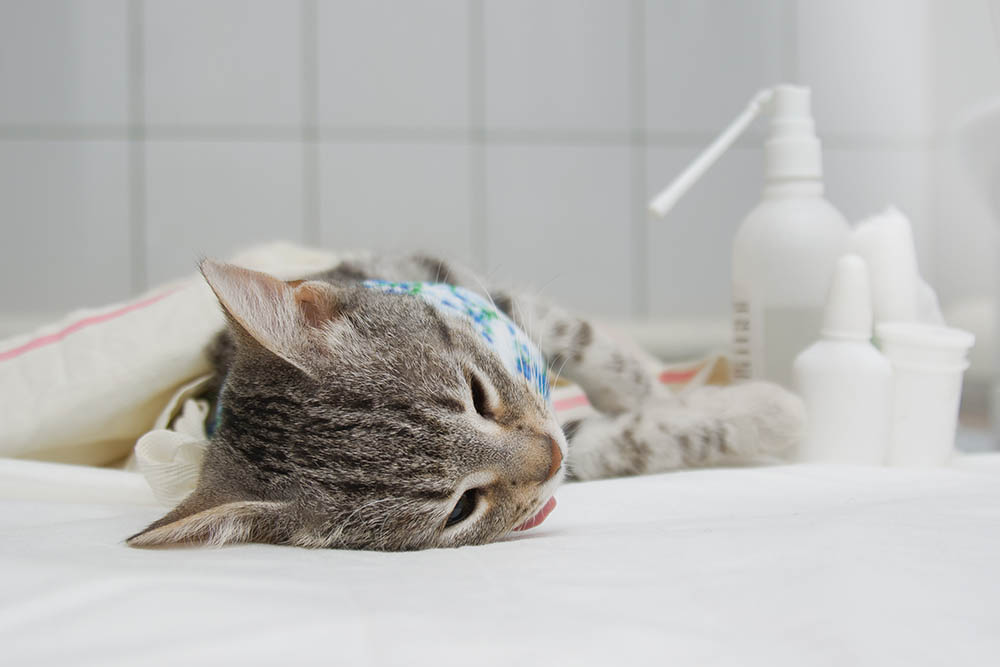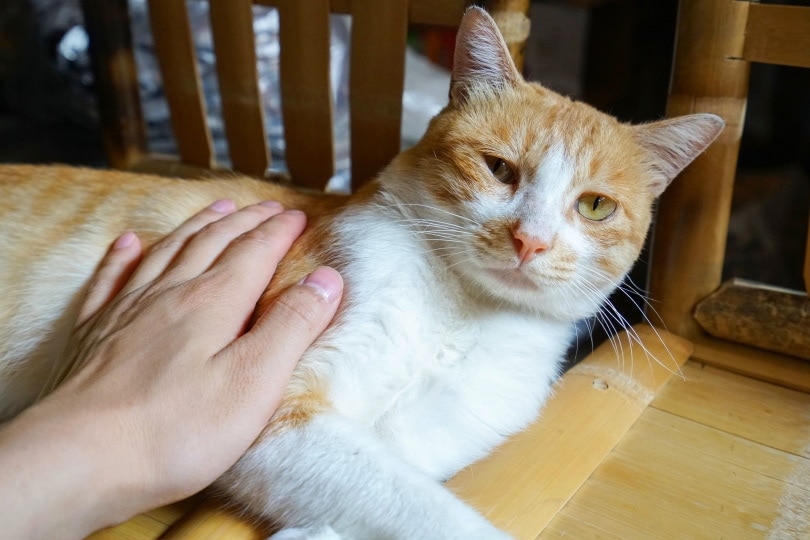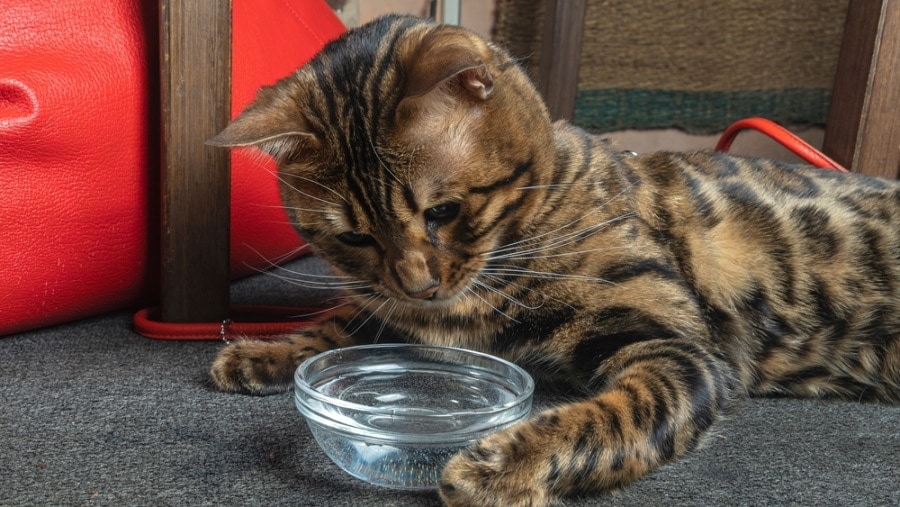25 Questions to Ask a Cat Breeder Before You Buy a Kitten
Updated on

The 25 Questions to Ask a Cat Breeder
1. How long have you been breeding cats?
Breeding animals isn’t as straightforward as it may seem. Finding a breeder that has years of experience in breeding gives you an idea of their knowledge base and what type of resource they may be to you if you take one of their kittens home. Finding an experienced breeder can give you peace of mind that this isn’t someone who jumped onto a popular breed bandwagon 6 months ago to make a quick buck. You may also ask the breeder if they have only bred this breed or if they breed or have bred other breeds of cats or other animals.

2. How many litters do you have at a time?
If the breeder has more than 1–2 litters at a single time, they may not be a good option for you. Responsible breeders limit the number of litters they have at a time, as well as the number of litters they breed annually. “Kitten mills” and irresponsible breeders will breed every female every chance they get.
3. How often do you breed your queens?
The number of litters isn’t the only important number. Finding out how frequently the breeder breeds each queen can give you an idea of the type of care the cats are receiving. If you’re talking to a breeder who has 8-week-old kittens and the queen is already pregnant again, that’s a red flag and it’s best to avoid that type of breeder. A responsible breeder that cares for their cats won’t breed them every single time they go into season.
4. How many times do you breed a queen before she retires?
An alternative to this question is, “At what age do you retire your queens?” Even cats with high-quality pedigrees or titled show wins aren’t going to be used as breeding factories. Most good breeders breed a queen a handful of times over a period of a few years and then retire her and get her spayed. A breeder who breeds a cat as much as possible through her entire usable breeding life is not looking out for the well-being of their cats.
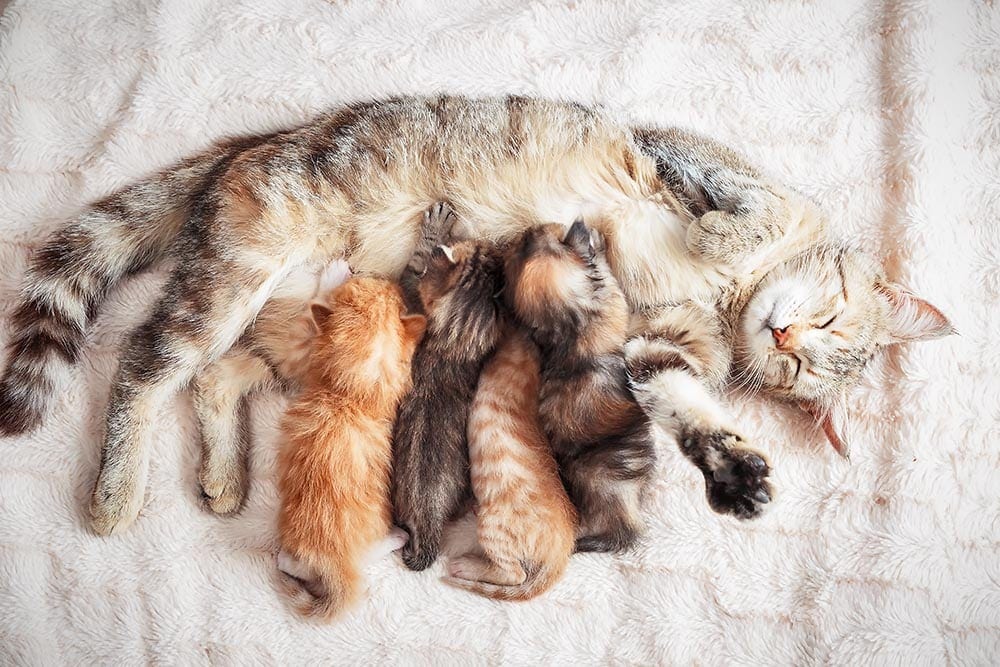
5. How old are your queens when you breed them for the first time?
As often as we see stray cats having kittens as young as 6–8 months of age, this isn’t a healthy option, and a responsible breeder knows this. Most cats don’t reach full maturity until 2–5 years of age. A cat under 2 years hasn’t had time to fully prove herself, so the breeding is occurring either solely because of her pedigree or to get the most out of her usable breeding time.
6. Are there genetic disorders or birth defects commonly associated with this breed?
Knowing what types of disorders might commonly occur in the breed you’re interested in will help you have a base knowledge of if a breeder is giving you good information or not. Some cat breeds are prone to congenital disorders and deformities. The development of a congenital disorder or deformity doesn’t indicate a bad breeder on its own. Even the best breeders can have a sickly or malformed kitten.
7. What kind of health testing do you do?
Health testing is a set of specific tests performed by a veterinarian to rule out genetic disorders in the breeding pair. This is to remove carriers of disorders from the gene pool, decreasing the likelihood of a disorder continuing in a breed. The breeder and the breeder’s veterinarian should know the types of testing that should be performed for the breed. Many breeders use Embark testing, which is a useful tool for ruling out some problems, but Embark tests are not all-inclusive and cannot replace specialty diagnostics performed by a veterinarian. Use caution with a breeder who only uses this type of testing and bypasses veterinary testing.

8. How old are your kittens before they go to new homes?
Oftentimes, good breeders will keep kittens for 12–16 weeks before sending them to new homes. This allows plenty of time for proper socialization and weaning, as well as to monitor for the delayed onset of any health problems. Kittens can go to homes as early as 8 weeks if fully weaned, but many veterinarians recommend waiting until they are at least 10 weeks old. Keep in mind that there are some restrictions on air travel and interstate travel for animals, especially those under a certain age, so make sure to check the laws before purchasing a kitten in another state.
9. Are your kittens vaccinated and dewormed before going to their new homes?
Depending on the age of the kittens when they go to homes, they should have had anywhere from one to three sets of vaccines and deworming. A kitten that is over 12 weeks of age that has not received any vaccinations is concerning and may indicate a lack of medical care.
10. Do your kittens see a veterinarian before going to new homes?
Follow up the vaccination and deworming question with this question. Many people purchase dewormers and vaccines from farm supply stores and administer the vaccines on their own. The only vaccine that this cannot be done within most areas is the rabies vaccine, which is typically administered no earlier than 6 months of age. If the breeder is doing the vaccinations and deworming on their own at home but not having a vet check the kittens over at any point, that’s a big red flag.
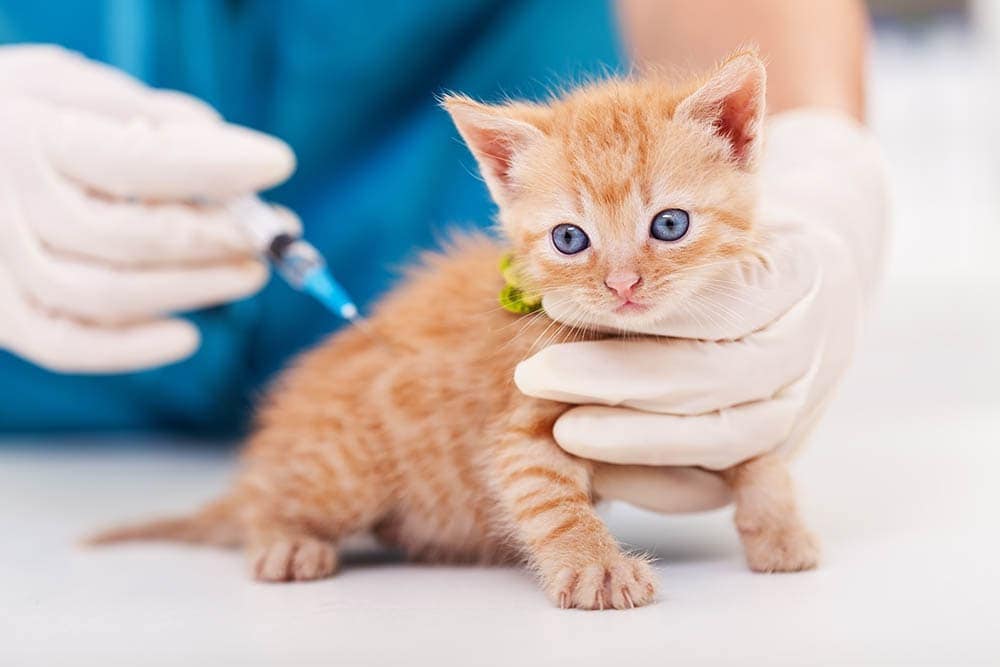
11. Have you had any medical issues come up with this litter?
Finding out if any problems have arisen with the kitten you’ve picked or their littermates will give you an idea of the overall health potential of the kitten. If kittens in the litter have congenital defects or birth defects, this can be concerning. If they have experienced multiple deaths in the litter, bouts of infectious disease, or significant parasite issues, then proceed with caution.
12. What type of health guarantee do you provide?
Most breeders will provide some type of health guarantee. Even bad breeders often provide this to cover themselves. Health guarantees cover the overall health of the kitten, usually for a few days after taking them home, and they cover specific types of problems over a specified period of time. So, if you take your kitten home and it dies or becomes gravely ill that night, you should be covered under the health guarantee. If your vet detects a heart arrhythmia when your kitten is a year old, you may or may not be covered. Make sure to understand the breeder’s and the purchaser’s responsibilities with these guarantees.
13. Do you offer refunds or replacements?
There are several reasons you may need a refund or replacement for a kitten. Whether the kitten died or you have ended up in a position where you can no longer provide for the kitten, the breeder should be able to tell you if they can or can’t provide a refund or replacement.

14. What does your breeder’s contract include?
The breeder should be able to tell you what both of you are contractually obligated to do. Many good breeders have anti-declaw clauses that void health guarantees if a declaw is performed on the cat. These contracts also typically include spay/neuter requirements, or the specifics of the arrangement if you are purchasing a kitten with breeding rights.
15. Do your breeding cats have pedigrees/notable bloodlines?
You may not know what the notable bloodlines for your breed are, and most people won’t expect you to. However, if the breeder can provide you with some information or documentation on the bloodlines of their cats, this can indicate they have genetic diversity in their breeding program and that they have a focus on carrying on the breed standard.
16. Do your breeding cats have titles of their own?
Cats that have show titling are often great candidates for breeding programs. Breeding a cat simply because you like that particular cat isn’t a responsible way to breed. Breeding should be done to breed standard, and titled parents indicate that a breed standard breeding has occurred.
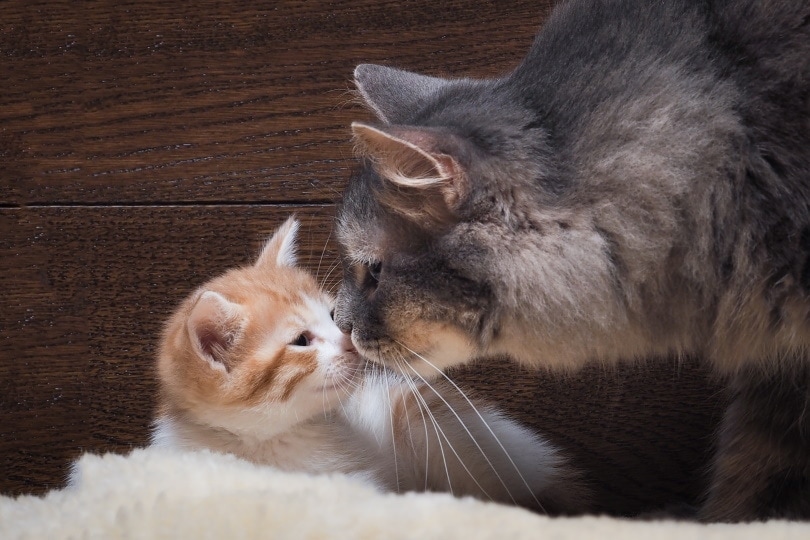
17. Is your cattery registered with any cat clubs?
There are multiple breed clubs, national cat clubs, and international cat clubs. Familiarizing yourself with these, like the Cat Fanciers’ Association and the International Cat Association, will help you know if the registration is legitimate. Pretty much anyone can set up a breed or cat club, so making sure the club your breeder is registered with is a recognized governing body of standards will help give you an idea of if they’re breeding responsibly or not.
18. Do you sell kittens to or through pet shops or marketplace sites?
If the answer to this question is yes, it’s a huge red flag. Responsible breeders care where their kittens go, and they want to vet homes. Selling to pet shops indicates the breeder is attempting to make a profit, not looking out for the well-being of the cats and the standard of the breed. If the breeder is selling cats through local marketplaces to anyone who wants a cat, be very cautious. If they are vetting buyers, this may just be a marketing technique. However, it’s often a questionable way to handle things.
19. Are the mother and father of the litter onsite at your cattery?
This is another question that helps root out breeders who are in it for the money. Many breeders own or co-own both parents, allowing them to give you plenty of information on the parents. Sometimes, breeders will breed out into another breeding program, and this isn’t always a red flag. If neither parent is onsite, this is a concern.

20. Is it possible to tour your cattery?
Many people run catteries out of their own homes, so it’s not unheard of for the answer to this question to be “no.” If they are willing to let you tour the cattery or come meet the parents of the litter, then you’ll have an opportunity to see the overall health and appearance of the parents, as well as the living environment. This will help you rapidly determine if you’re dealing with a hoarder, kitten mill, or responsible breeder.
21. Can you provide pictures of the litter’s queen and the whelping area?
If the breeder turns you down for a visit to the cattery, ask for pictures. Seeing the environment that the queen and kittens are being kept in can give you a great idea of the overall environment of the home or breeding facility. Keep an eye out for pictures that look staged or are taken or cropped at unusual angles. This can also give you a chance to see if the queen appears happy and well-fed or stressed and sickly.
Many catteries raise kittens “underfoot” in their own homes. This is a wonderful opportunity for kittens to develop social skills with humans and other animals. Many breeders have other pets, so your kitten may have experience with other cats or dogs before it comes home with you. A kitten that is under-socialized or that has lived its life in a cage will likely be unhealthy and difficult to manage.

23. What type of food do you feed your kittens?
Now that the hardest questions are out of the way, here’s an easy one. It’s important to your kitten’s transition into your home that you keep the food the same. Some breeders will provide a sample, bag, or cans of food when you take your kitten home. Others will have specifics in the contract about what you should feed the kitten per the health guarantee. At the very least, you need to know what food the kittens have been receiving so you can be prepared at home to make the transition as easy as possible on your new family member.
24. How long have the kittens been weaned?
Your kitten should have been weaned and eating softened solid or hard solid food for at least a couple of weeks when you take them home, which is another reason that many breeders wait until kittens are 12 weeks or older to send them to homes. If you take home a kitten that is 8 weeks old, it may have just been weaned or may not be fully weaned, which can be stressful for both of you.
25. What type of cat litter do your kittens use?
Cats can be very picky about litter, so if the kittens are used to a specific litter, then it’s a good idea to keep with that litter, at least during the adjustment period. If your kitten is used to shredded paper litter and you take it home to clay litter, your kitten may rebel and refuse to use the litter box properly.
Conclusion
It’s important to have answers to most of these questions before you fully decide to purchase from a specific breeder. It’s also important to be able to pick out red flags. Many people who discover they are dealing with a hoarder or kitten mill will go ahead and purchase the kitten, either because they are already attached or they feel bad about leaving the kitten in that environment. Unfortunately, this is the type of thing that bad breeders bank on. They don’t care why you bought the kitten; they just care that they got money for it. This feeds the cycle of bad breeding and only hurts more cats and kittens.
Featured Image Credit: Veera, Shutterstock


